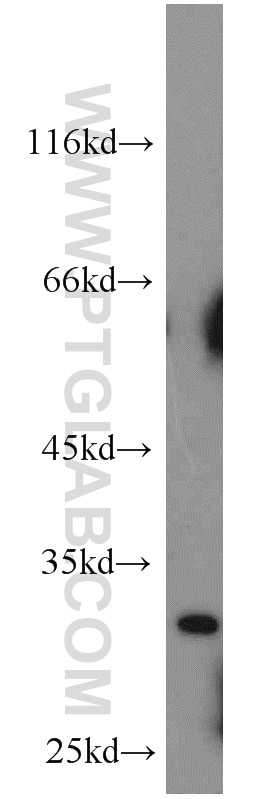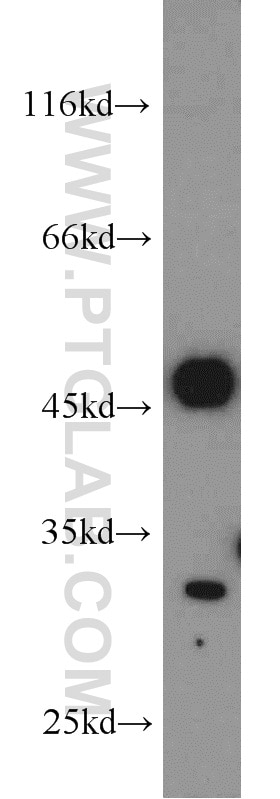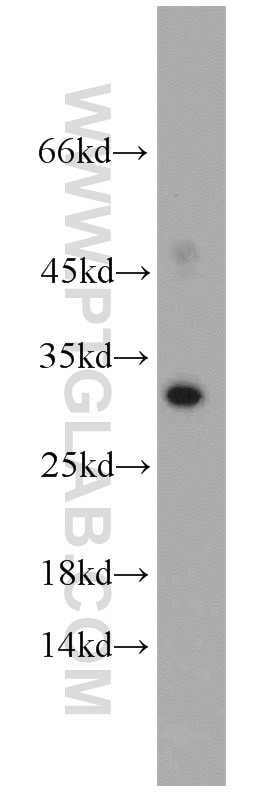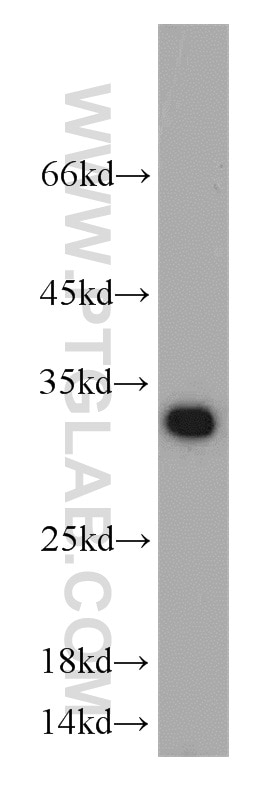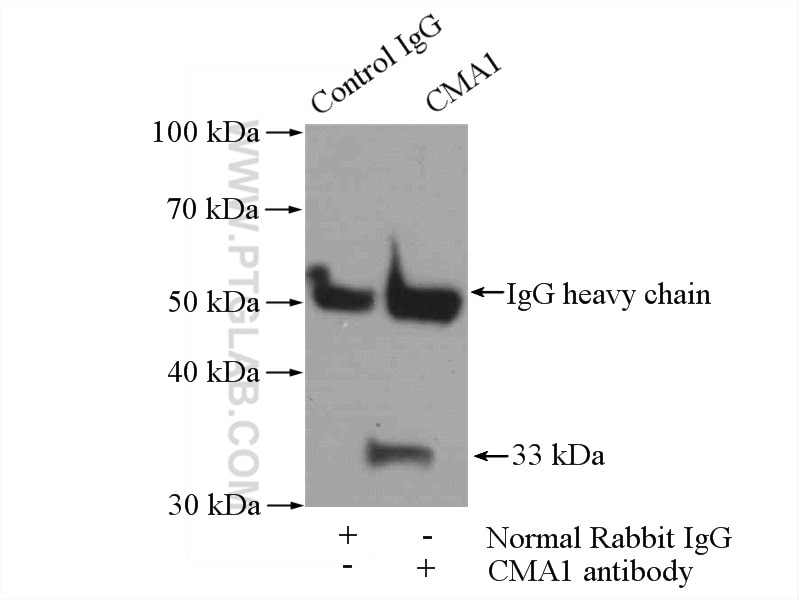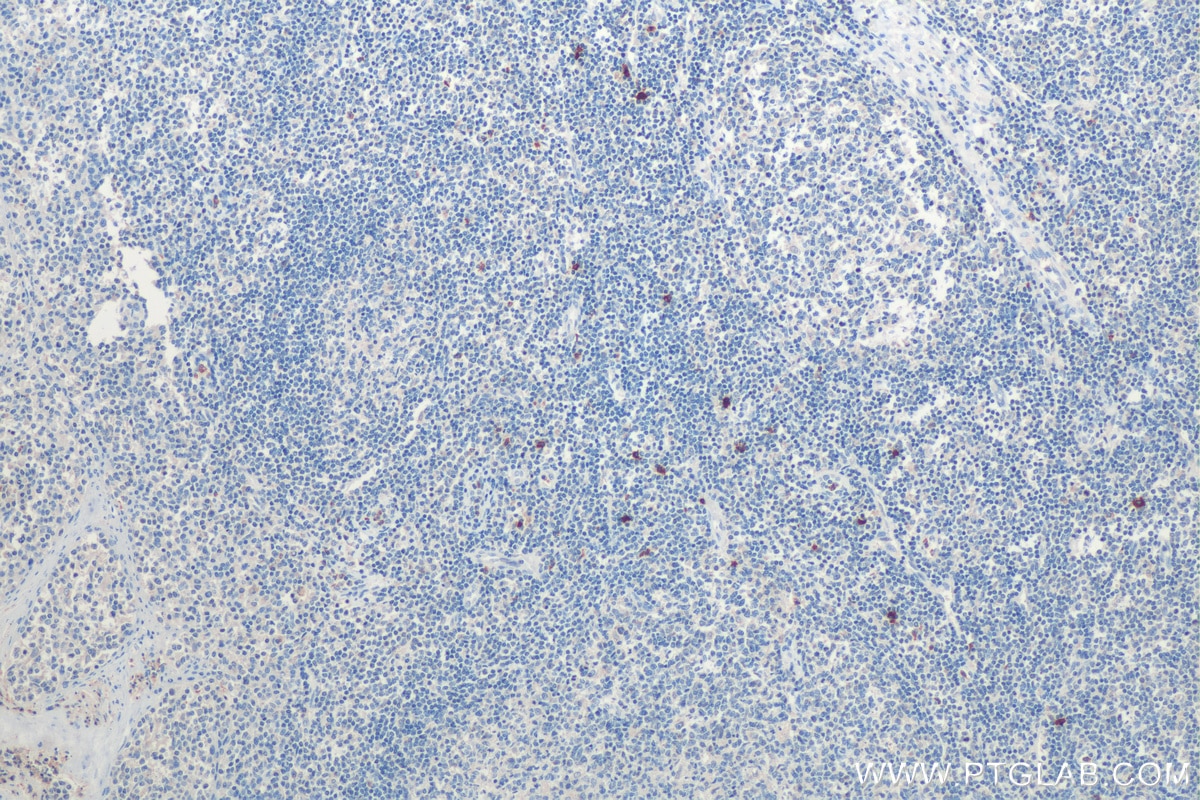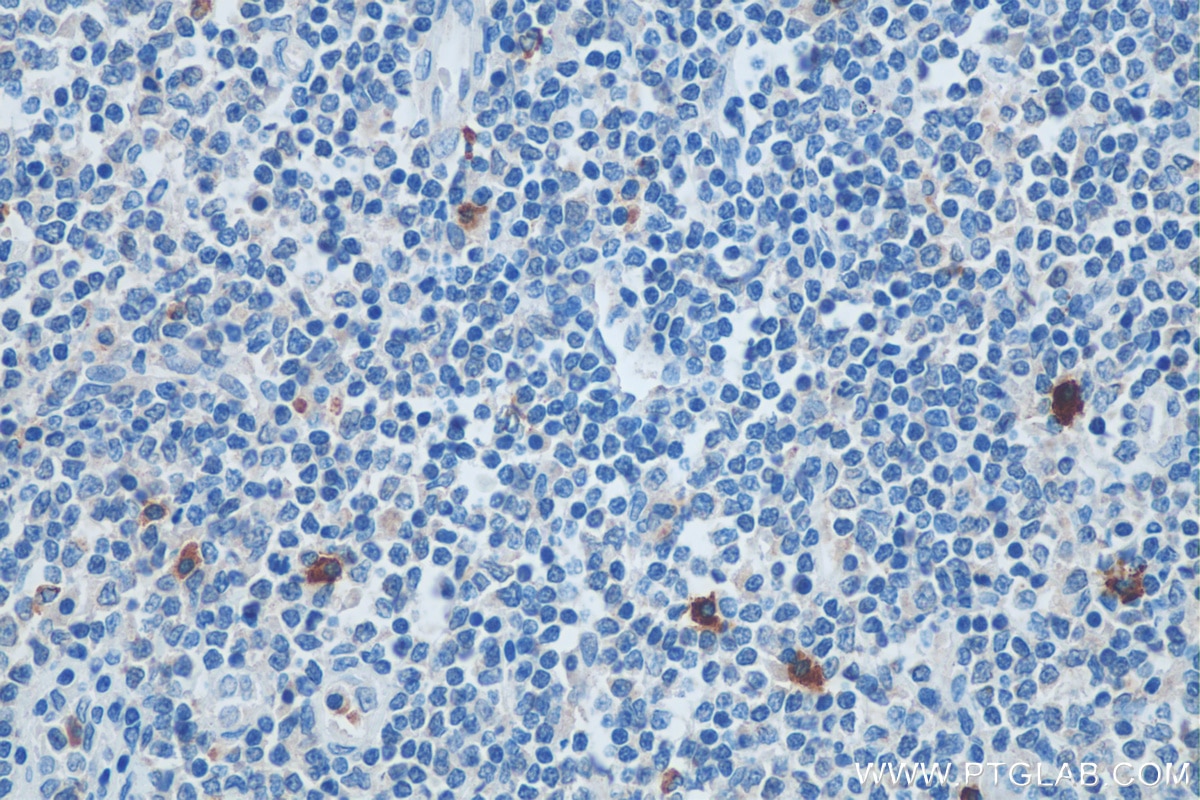- Phare
- Validé par KD/KO
Anticorps Polyclonal de lapin anti-Mast Cell Chymase
Mast Cell Chymase Polyclonal Antibody for WB, IP, ELISA
Hôte / Isotype
Lapin / IgG
Réactivité testée
Humain, rat, souris
Applications
WB, IP, IF, ELISA
Conjugaison
Non conjugué
N° de cat : 18189-1-AP
Synonymes
Galerie de données de validation
Applications testées
| Résultats positifs en WB | tissu cardiaque de souris, cellules MCF-7, tissu cardiaque humain, tissu placentaire humain |
| Résultats positifs en IP | tissu cardiaque de souris |
| Résultats positifs en IHC | tissu d'amygdalite humain, il est suggéré de démasquer l'antigène avec un tampon de TE buffer pH 9.0; (*) À défaut, 'le démasquage de l'antigène peut être 'effectué avec un tampon citrate pH 6,0. |
Dilution recommandée
| Application | Dilution |
|---|---|
| Western Blot (WB) | WB : 1:500-1:1000 |
| Immunoprécipitation (IP) | IP : 0.5-4.0 ug for 1.0-3.0 mg of total protein lysate |
| Immunohistochimie (IHC) | IHC : 1:50-1:500 |
| It is recommended that this reagent should be titrated in each testing system to obtain optimal results. | |
| Sample-dependent, check data in validation data gallery | |
Applications publiées
| KD/KO | See 1 publications below |
| WB | See 9 publications below |
| IF | See 2 publications below |
Informations sur le produit
18189-1-AP cible Mast Cell Chymase dans les applications de WB, IP, IF, ELISA et montre une réactivité avec des échantillons Humain, rat, souris
| Réactivité | Humain, rat, souris |
| Réactivité citée | rat, Humain, souris |
| Hôte / Isotype | Lapin / IgG |
| Clonalité | Polyclonal |
| Type | Anticorps |
| Immunogène | Mast Cell Chymase Protéine recombinante Ag12909 |
| Nom complet | chymase 1, mast cell |
| Masse moléculaire calculée | 247 aa, 27 kDa |
| Poids moléculaire observé | 27-30 kDa |
| Numéro d’acquisition GenBank | BC069370 |
| Symbole du gène | Mast Cell Chymase |
| Identification du gène (NCBI) | 1215 |
| Conjugaison | Non conjugué |
| Forme | Liquide |
| Méthode de purification | Purification par affinité contre l'antigène |
| Tampon de stockage | PBS avec azoture de sodium à 0,02 % et glycérol à 50 % pH 7,3 |
| Conditions de stockage | Stocker à -20°C. Stable pendant un an après l'expédition. L'aliquotage n'est pas nécessaire pour le stockage à -20oC Les 20ul contiennent 0,1% de BSA. |
Informations générales
Mast Cell Chymase, also named as CYH, CYM and CMA1, belongs to the peptidase S1 family and Granzyme subfamily. It is the major secreted protease of mast cells with suspected roles in vasoactive peptide generation, extracellular matrix degradation, and regulation of gland secretion. CMA1 maybe a target for cardiovascular disease therapies.
Protocole
| Product Specific Protocols | |
|---|---|
| WB protocol for Mast Cell Chymase antibody 18189-1-AP | Download protocol |
| IHC protocol for Mast Cell Chymase antibody 18189-1-AP | Download protocol |
| IP protocol for Mast Cell Chymase antibody 18189-1-AP | Download protocol |
| Standard Protocols | |
|---|---|
| Click here to view our Standard Protocols |
Publications
| Species | Application | Title |
|---|---|---|
Proc Natl Acad Sci U S A Perinatal androgens organize sex differences in mast cells and attenuate anaphylaxis severity into adulthood. | ||
Arterioscler Thromb Vasc Biol Stabilization of Perivascular Mast Cells by Endothelial CNP (C-Type Natriuretic Peptide). | ||
Int J Mol Sci Stress and Nasal Allergy: Corticotropin-Releasing Hormone Stimulates Mast Cell Degranulation and Proliferation in Human Nasal Mucosa. | ||
Cell Cycle Overexpression of monocarboxylate anion transporter 1 and 4 in T24-induced cancer-associated fibroblasts regulates the progression of bladder cancer cells in a 3D microfluidic device. | ||
Sci Rep Chymase-producing cells of the innate immune system are required for decidual vascular remodeling and fetal growth. | ||
